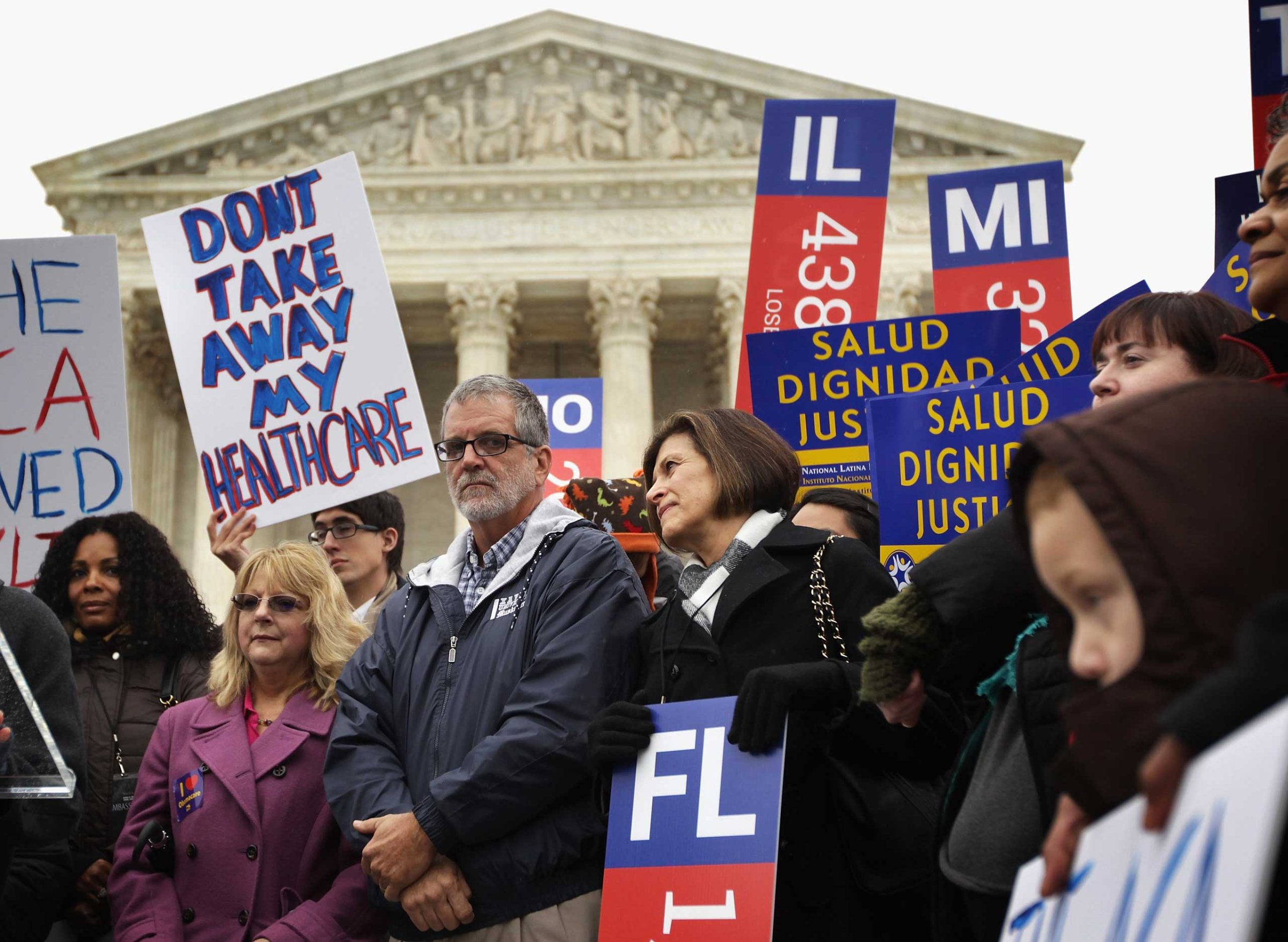
Chief Justice John Roberts once again holds the fate of Obamacare in his hands.
The conservative Supreme Court Justice who provided the crucial vote to save the Affordable Care Act in 2012 was at the center of many of the arguments Wednesday on another legal challenge to the law. But like the eye of a hurricane, he remained quiet.
Roberts made only two substantive remarks during the hour and a half of oral arguments on King v. Burwell. One was to casually dismiss a line of argument pursued by liberal Justice Ruth Bader Ginsburg, who had peppered an attorney behind the lawsuit with questions over whether the plaintiffs had the standing to sue. The other was to note that a future President — presumably a Republican — could reverse the Obama Administration’s readings of the law.
But Roberts was the unspoken audience for an argument made by two other Justices because of his reasoning in the last Obamacare challenge. In that decision, he argued that Congress could not force states to expand Medicaid by threatening them financially — something he compared to putting “a gun to the head.”
This time around, liberal Justice Sonia Sotomayor and conservative Justice Anthony Kennedy argued that if Congress made health-insurance subsidies dependent on whether a state set up its own exchange — the argument that conservative lawyers were making — that would be similarly improper coercion.
“If we read it the way you’re saying, then we’re going to read the statute as intruding on the federal-state relationship,” Sotomayor told a lawyer for the plaintiffs. “Because then the states are going to be coerced into establishing their own exchanges.”
Kennedy was even more blunt. “If your argument is accepted, the states are being told either create your own exchange, or we’ll send your insurance market into a death spiral,” he said. “The cost of insurance will be sky high, but this is not coercion. It seems to me that … there’s a serious constitutional problem if we adopt your argument.”
Two other conservatives, Justices Antonin Scalia and Samuel Alito, questioned whether the dire warnings that the federal government has presented as potential consequences of a decision really would come true.
“You really think Congress is just going to sit there while all of these disastrous consequences ensue?” Scalia asked. “Congress adjusts, enacts a statute that takes care of the problem. It happens all the time.”
Solicitor General Donald Verrilli then earned a laugh when he responded, “Well, this Congress…”
More Must-Reads From TIME
- The 100 Most Influential People of 2024
- The Revolution of Yulia Navalnaya
- 6 Compliments That Land Every Time
- What's the Deal With the Bitcoin Halving?
- If You're Dating Right Now , You're Brave: Column
- The AI That Could Heal a Divided Internet
- Fallout Is a Brilliant Model for the Future of Video Game Adaptations
- Want Weekly Recs on What to Watch, Read, and More? Sign Up for Worth Your Time
Contact us at letters@time.com